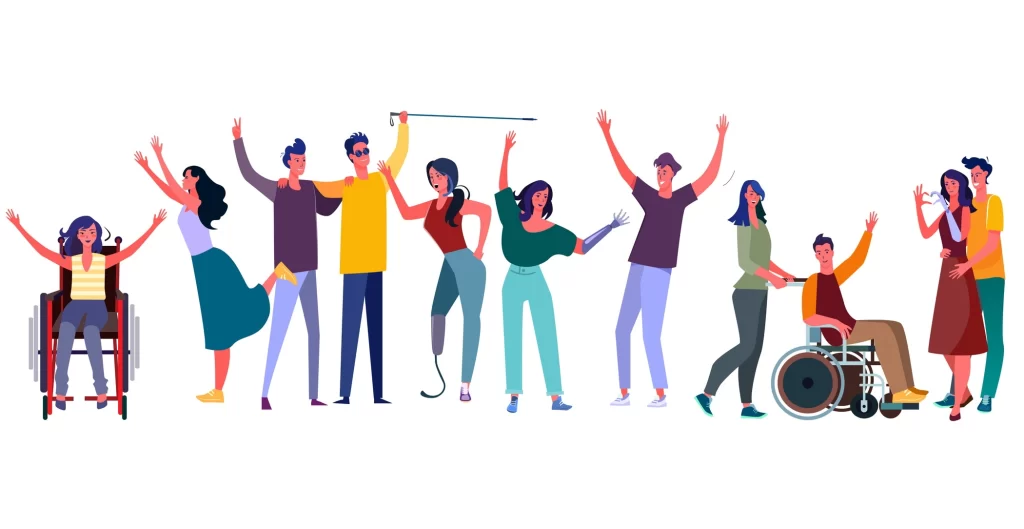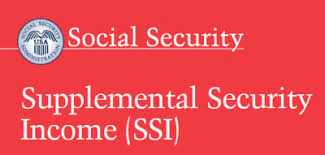
Supplemental Security Income (SSI) is a federal program that provides income to people 65 and older, blind, disabled, or who have little or no income. If you are an adult with disabilities or have a child with disabilities who will turn 18 soon, understanding how to make sure they qualify for SSI is important. In most states, once you qualify for SSI, you also qualify for Medicaid. They can use Medicaid as a supplement to private insurance or as primary insurance.
I applied for SSI on my daughter’s behalf once she turned 18. I am her guardian, so I could complete the application and interview for her. Applying for and receiving SSI was not a hard process. I plan to discuss my experiences with applying for SSI in a future post. This post helps you understand the income requirements and the impact of your child having resources in their name. It is never too early to protect your child’s eligibility for services and programs.

Here are 5 important things you should know about protecting your child’s eligibility for SSI and Medicaid:
1. When your child applies, they need to have $2000 or less in resources.
SSA checks anything with your child’s social security number associated with it. Report any savings bonds with your child’s name on them. Trust me, SSA knew of bonds that I didn’t even know about in my child’s name. This can affect your child’s income total. It really is easier on you when you apply for SSI to have no money associated with your child’s social security number. The more income your child has, the lower their SSI payment will be. Countable resources cannot be over $2000. It means anything in your child’s name counts. They calculate this on a monthly basis. This means that if you are over the limit in September, you won’t receive a September payment. You can have your resources examined again the next month to re-qualify.
2. How SSI defines income.
SSI uses anything (not just cash) you receive that can meet your needs for food or shelter as income. Be very careful here. It can be someone directly providing food or shelter. For example, if you pay for your adult child’s food, then you are giving them income. Also, it is income if they can sell or convert it to pay for food or shelter. So we created a Special Needs Trust for our daughter to hold any gifts or money so it would not apply as a resource for her.
| Income | Not income |
| · Stocks, bonds (including savings bonds) · Bank accounts · Life insurance · Vehicles (see exception) · Land (see exception) | · The home you live in and the land it is on · One vehicle- used by you or a member of your household · Personal effects · Life insurance policies you own (your child’s name) with a face value of $1500 or less · Burial plots · $100,00 in an ABLE Account |
3. Resources that are NOT considered income by SSI.
The easiest definition: if it can’t be used for food or shelter or to get food or shelter, it is NOT income. We pay for our daughter’s medical insurance premiums (we have private insurance and Medicaid for her) and this does NOT count as income for SSI. You may pay your child’s phone bill or pay for a vacation; They would not consider that income. They do not count some programs that provide help as income, like state and local assistance that is completely state and locally funded, rent subsidies from HUD, supplemental nutrition assistance (food stamps), The Affordable Connectivity Program, or home energy assistance. The Social Security Administration will not count grants or scholarships for education as income. You can find the full list here.
4. If your child lives with you, it could impact their SSI payment.
Food and shelter are the resources you need to remember. If your child lives with you after they are 18, they must pay fair market value for rent in your home, otherwise, you are providing in-kind income. The hardest one to figure out was this one. For example, if the fair market value for renting part of our home is $700 and we only charge our daughter $500, we have given her an in-kind income of $200. That $200 will affect her SSI payments. Here, the one-third reduction rule applies. So, they would reduce her SSI monthly payment from $841 to approximately $560 (2022 figures) because she did not pay her fair share.
You can examine rental rates in your area to determine how much to charge or add up all the household bills (mortgage or rent and utilities) and divide it by the number of people living in the home. Either will give you the fair market value that your child must pay in rent. You can easily find a rental agreement online to complete as proof that you will charge your child rent. Or, take the lower monthly payment (reduced by 1/3) and it will not affect Medicaid at all.
5. Your child will need a bank account.
They make SSI payments electronically, so open a bank account in your child’s name. Understand all the money in that account will be your child’s money in the eyes of the government. If it is a joint account, they still consider the money as your child’s because they can access it. To make it easy, I opened one account for my daughter that has me listed as the guardian. This is the account we use for SSI payments. This is the account Social Security checks to see if it has over $2000 in it. My daughter has NO other accounts with her name on them. NONE. This is important. Anything with her name on it means she can access it, and this can affect SSI. I opened a second account for her trust. This account has the trust’s name on it and uses the federal id number for the trust, not her social security number.
SSI will provide independence for your child when they become an adult. That independence is an important part of becoming an adult. If they are able, it could mean having their own apartment, learning to pay bills, and making their own decisions. Preparing and protecting what is associated with your child now will help provide stability and independence for them in the future.


